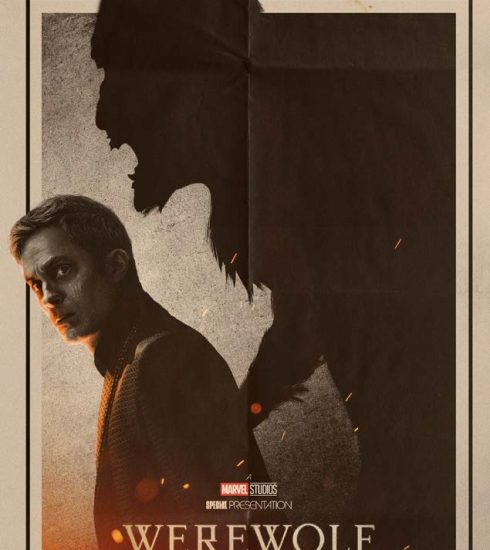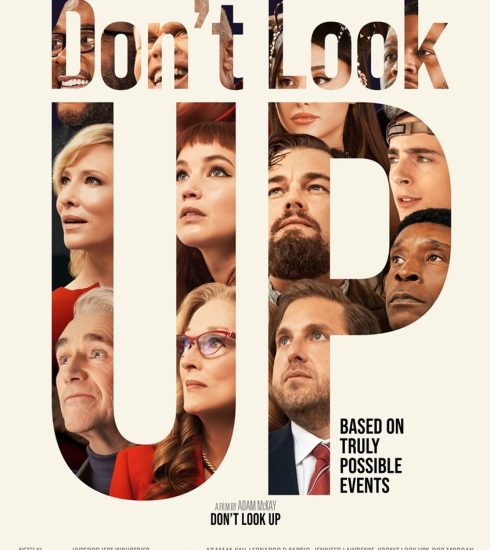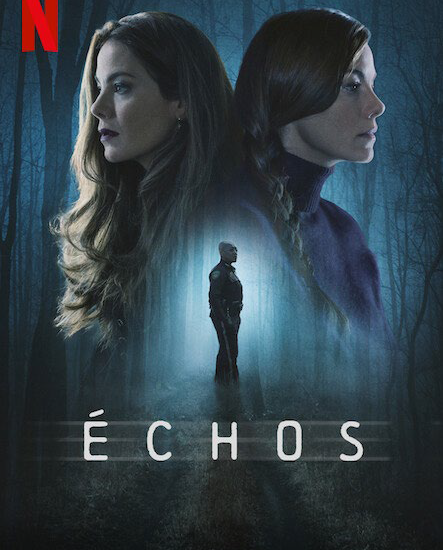Movie Review: Megalopolis
There’s nothing quite like Megalopolis, both for better and for worse.
A grand vision of a future world not too far removed from our own, Francis Ford Coppola’s sci-fi drama is ambitious, sprawling and oftentimes nonsensical, a big swing that is mostly admirable because of the bigness of its swing, even if it largely whiffs on its target.
What that target is isn’t always clear, and the pathway getting there is often befuddling. Yet the grandiosity of Coppola’s spectacle is admirable, and there’s real passion bleeding through his filmmaking.
After largely scaling back the last three decades — while he was still making studio films in the latter half of the 1990s, he hasn’t approached anything of this scope since Bram Stoker’s Dracula in 1992 — Coppola returns to big-time moviemaking with this singular epic that defies categorisation, and it punctuates the Godfather saga and Apocalypse Now director’s career with both an exclamation point and a question mark. (Megalopolis could justifiably be stylised as Megalopolis!?)
Armed with a self-funded budget of $125 Million, the 85-year-old writer-producer-director-genius sets his story in New Rome, a version of New York that closely parallels ancient Rome. What that mostly means is everybody has bad haircuts, including Cesar Catilina (Adam Driver), an architect who is the creator of a new, highly touted indestructible material, and who also has the ability to stop time at will.
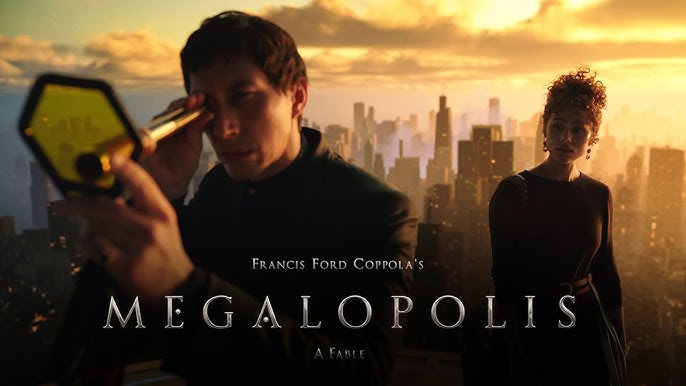
Cesar is carrying on romantically with Julia Cicero (Nathalie Emmanuel), the daughter of New Rome’s mayor Franklyn Cicero (Giancarlo Esposito), who just happens to be Cesar’s arch nemesis. But he’s also romantically linked to scheming TV reporter Wow Platinum (Aubrey Plaza), whose name, Wow Platinum, bears repeating, just in case you think Megalopolis might be grounded in anything resembling reality. (The good news: M. Night Shyamalan, who in Old gave a rapper character the stage name Mid-Sized Sedan, is no longer on the hook for creating the decade’s most ludicrously named on-screen role.)
Shia LaBeouf is on board as the evil Clodio Pulcher (wow, the names roll off the tongue in this one), Cesar’s cousin, who is always hanging around the fray trying to weasel himself into power and whose eyebrows are configured differently in every scene in which he appears. Jon Voight plays Cesar’s power drunk (or maybe just plain drunk) uncle, Hamilton Crassus III, and Laurence Fishburne plays Cesar’s driver, Fundi Romaine (take a shot every time you laugh at a name in this one), as well as the narrator of the story, who at one point answers himself in his own voiceover. Dustin Hoffman, Balthazar Getty, Grace VanderWaal, Talia Shire (Coppola’s sister) and Jason Schwartzmann (Coppola’s nephew) also show up in various roles.
The story revolves around the quest for power within the city and Cesar’s vision of a utopia where every adult human is entitled to their own garden, and everyone can ride magic streams to the city’s closest parks. But it’s also about love, truth, sex scandals, pop starlets, greed, lust, legacy, class systems, parents and children, creation and destruction, art deco architecture, destiny and the entirety of humanity, for starters. As befitting a story that has been rattling around inside Coppola’s head for decades, it touches on (or blatantly points toward) the assassination of Julius Caesar, the rise of Adolf Hitler, Elvis Presley, 9/11, Donald Trump, January 6th and Beethoven’s 7th Symphony, to name a few of the film’s historical and cultural touchpoints.
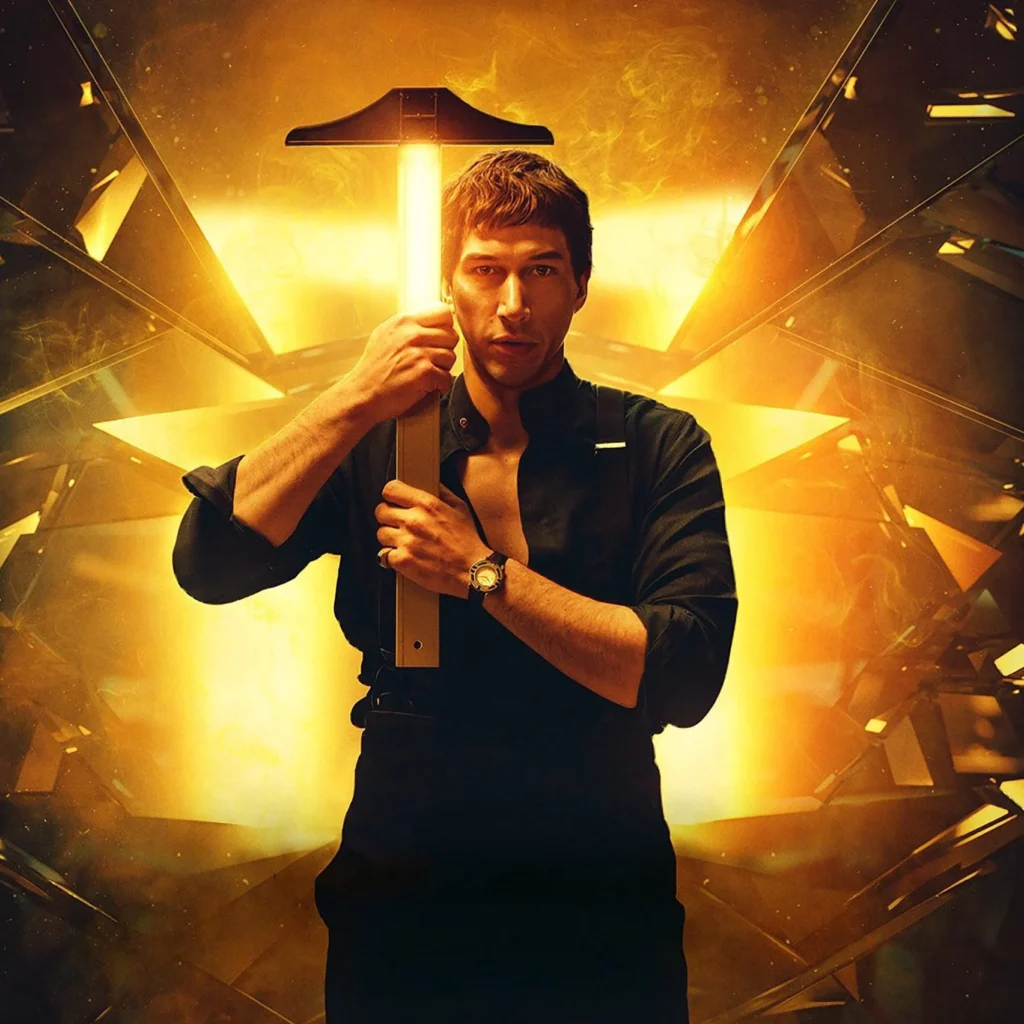
These ideas and concepts are explored by actors who largely seem to be on their own islands, which occasionally slam into each other. Driver plays a big thinker philosophical type, but he also has a head-nodding line about going to the “cluuuub” that qualifies as the most bizarre line reading of his career.
Emmanuel plays the innocent waif, while LaBeouf slinks around edges of the screen so connivingly he might as well be wearing a devil costume from Halloween USA. Plaza, for her part, is the film’s most campy presence (saying a lot here), and at one point, she goes full vixen in a scene whose madcap energy Megalopolis could have used more of.
Characters are forever speaking in big quotes from acclaimed works; Driver’s Cesar at one point quotes most of Hamlet’s “to be or not to be” speech, and there’s also lines cribbed from Marcus Aurelius and Shakespeare’s The Tempest.
The somewhat hazy, gauzy look of the film relies heavily on green screens that aren’t even trying to look real; the scenes inside the Roman Colosseum-ized Madison Square Garden recall the cheap-looking arena scenes from Idiocracy.
And yet there’s a texture to everything that reads as wholly sincere like it was made with care and by someone who believes in the good in people and the power of filmmaking to bring out the good in people. There’s nothing cynical about Megalopolis: It’s earnest to a fault and is all in on whatever it is or what it’s trying to be.
Maybe what exactly that thing is remains locked inside Coppola’s head. But there’s nary a dull frame to be found, and going along with him for the journey makes for a wild ride which exists outside traditional notions of what we consider, at a base level, “good” and “bad.” Megalopolis is an experience more than it’s a movie, and as an experience, it’s unforgettable. Wow Platinum, indeed.
Score : ????/10
This movie is easily the single most confounding thing I have had to review on this page. It is at most a 3/10 now, in 20 years it could be regarded as a 9/10.
Boluwatife Adesina is a media writer and the helmer of the Downtown Review page. He’s probably in a cinema near you.




